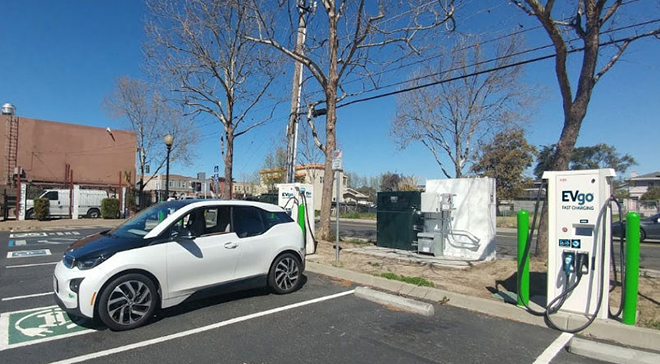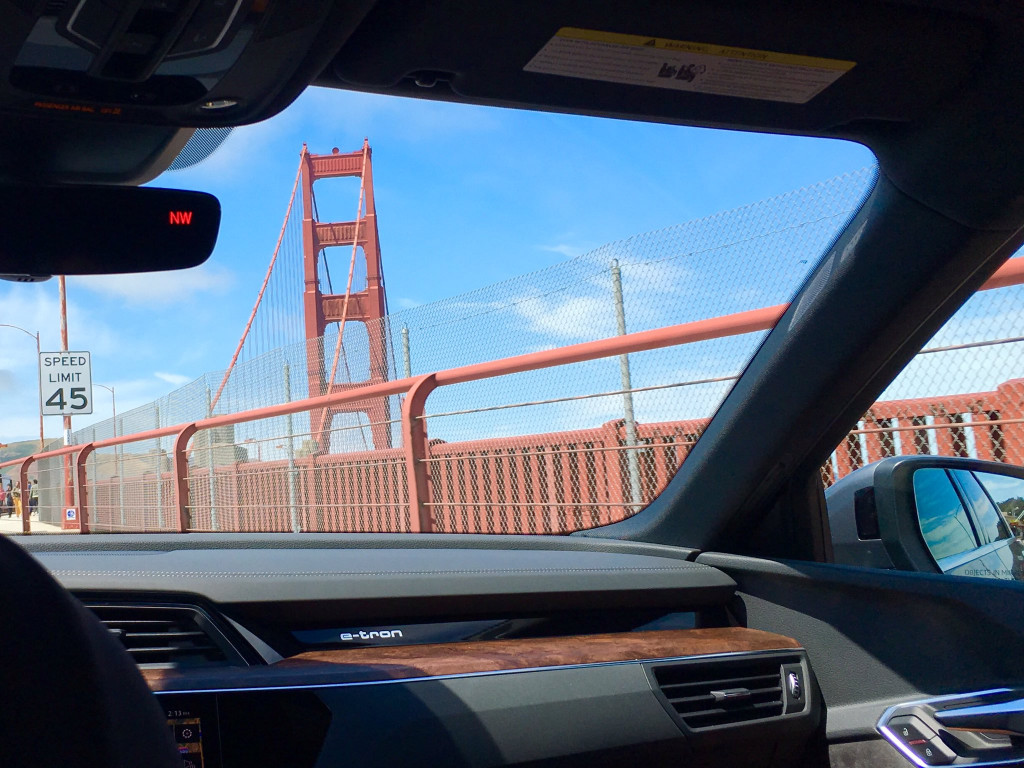General Motors, Fiat Chrysler Automobiles, and Toyota have come out against California and its Zero Emission Vehicle rules that mandate electric vehicles and place tighter restrictions on tailpipe emissions.
The automakers are allying with the Association of Global Automakers, the lobbying group representing a number of foreign automakers, including Hyundai, Kia, Honda, Nissan, Subaru, Aston Martin, Maserati, Toyota, and Byton.
The move essentially means that they’re siding with the Trump administration. And it creates two “sides” in which automakers are essentially either for or against California’s Clean Cars Program.
Ford, Volkswagen, BMW, and Honda together struck a side deal with California earlier this year, to comply with the state’s tighter regulations through 2025—a move that at least mapped out some certainty for those companies, as regulations could be confusing amid a long and drawn-out series of appeals and court challenges.

EVgo charging station in Union City, California with resused BMW i3 battery backup
“We think the evidence supports a middle ground,” said John Bozzella, the president of the Association of Global Automakers, which is effectively representing the coalition. “We want a unified program that includes California.”
According to the Washington Post, Bozzella told reporters Monday that the companies of the coalition don’t necessary support freezing fuel economy standards, as pushed by the Trump administration—and the coalition does support year-over-year improvements in mileage standards.
However this coalition of companies believes that the federal government has “sole purview” for national tailpipe-emissions standards—meaning that GM, Toyota, and FCA want to see California stripped of its vehicle-emissions authority.
A total of 23 states, including Michigan, have allied to fight the Trump administration’s challenge of California’s authority to set its own tailpipe emissions standards for cars and trucks. Environment California sums the Clean Cars policy, on the whole, as “a far more powerful policy for reducing global warming pollution from cars and trucks than the national CAFE standard passed in 2007.”

Audi e-tron, on the Golden Gate Bridge
All four of the companies have only so far committed to electric vehicles at volumes that potentially aren’t doing much more than satisfy credit requirements under California’s Zero Emission Vehicle Program.
The GM move, however, is particularly puzzling. GM CEO Mary Barra has pointed to a future that’s all-electric for the company, while President Trump has made fun of the strategy in rallies, arguing that “all-electric is not going to work.”
Senator Tom Carper, the top Democrat on the Senate Environment and Public Works Committee, said in a statement, as reported by the Washington Post: ““By aligning themselves with this administration’s reckless and illegal proposal, these companies are actively challenging the rights of states to set their own emissions standards and tackle the climate crisis.”
Even with GM, FCA, and Toyota on board to challenge California, it’s unlikely that the dispute will move forward any differently or that California will be any more likely to yield. But their allegiances have been known.












